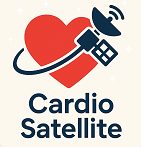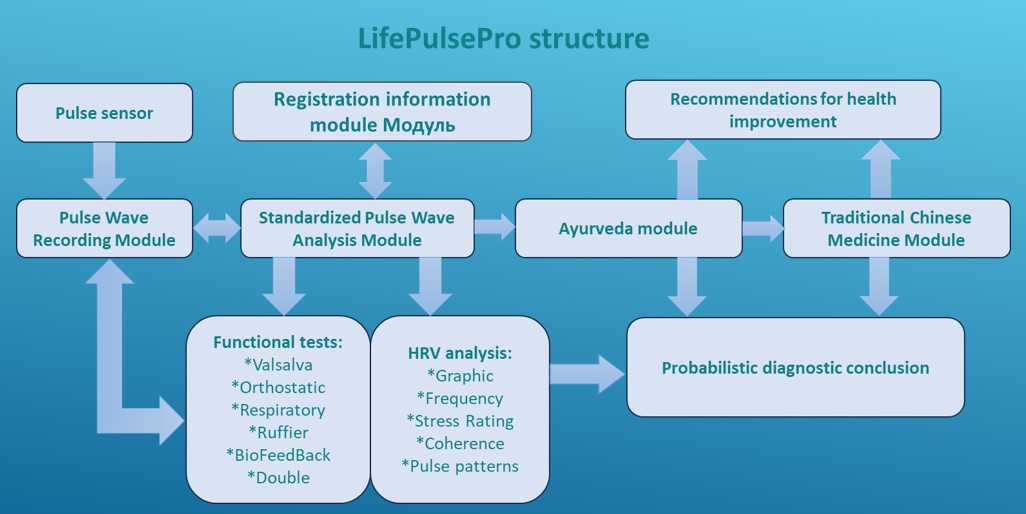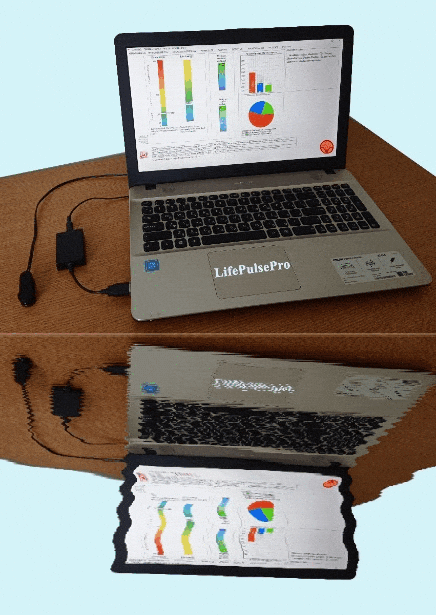Unlock the Power of Pulse Diagnostics with Life Pulse Pro
In the pursuit of health and balance, the body speaks in subtle rhythms — not in words, but in pulses. This ancient language, studied for centuries in Traditional Chinese Medicine (TCM) and Ayurveda, offers deep insight into our inner well-being. Today, pulse diagnostics bridges the wisdom of the past with the precision of modern technology.
Known as pulse reading or Nadi Pariksha in Ayurveda, this method goes beyond measuring heart rate. It analyzes subtle variations in the pulse — including rhythm, strength, and frequency — to reveal imbalances in the body before symptoms appear. Mastery in this practice requires experience and sensitivity, honed over years.
Now, with the advancement of diagnostic tools, this once exclusively manual technique becomes more accurate and accessible. Introducing **Life Pulse Pro** — a next-generation system that brings together ancient healing knowledge and cutting-edge science.
Life Pulse Pro: Where Tradition Meets Innovation
**Life Pulse Pro** is a modern pulse diagnostic system designed to support holistic health practitioners. Powered by a photoplethysmographic sensor, the device captures minute pulse wave patterns and transforms them into visual and quantitative data for easy interpretation.
Key features include:
- High-precision pulse wave analysis
- Diagnosis guided by Ayurvedic and TCM principles
- User-friendly software interface for practitioners at all levels
- Real-time pulse visualization and automatic insights
More than just a device, Life Pulse Pro is your gateway to a deeper understanding of the body's internal balance. Whether you are a seasoned holistic practitioner or exploring integrative diagnostics, this tool offers powerful insights to support personalized wellness and preventive care.
But this is just the beginning. Life Pulse Pro goes far beyond standard diagnostics — it offers a gateway to deep, comprehensive health insights.
Beyond the Pulse: Unveiling Deeper Insights
Standing at the intersection of tradition and modernity, Life Pulse Pro redefines pulse diagnostics. It doesn't stop at surface-level measurements — it dives into the complex interplay of physiological signals. One of its key features is the ability to detect early signs of cardiac autonomic neuropathy. With a dedicated software module, it highlights subtle warning signs that are often overlooked.
And that's not all — Life Pulse Pro includes a suite of functional tests, each designed to reveal a specific aspect of your cardiovascular system:
Within these meticulously designed modules lies a world of possibilities, a window to unlocking the intricate mysteries of the human body. Empowering healthcare professionals, they offer the means to conduct precise tests that provide a comprehensive assessment of a patient's health and physiological responses.
By seamlessly integrating these additional software modules into the LifePulse Pro hardware and software package, healthcare providers are equipped with a tool that offers insights. Detailed information paints picture of the patient's condition, enabling a more profound comprehension of their needs.
Reimagining the Pulse: Tradition Meets Innovation
In a world where technology reigns supreme, Life Pulse Pro stands as a testament to a different kind of approach. Departing from the standard pulse variability test that relies on electrocardiography methods and electrical contacts, this system harnesses the power of a photometric pulse sensor. It delves into the heart's very essence, deriving primary information from the real pulse wave of the peripheral pulse.
This shift in methodology speaks volumes about the alignment with the principles of Oriental medicine. The system peers into the pulse waves that echo after the heart's electrical impulses conclude and the life force surges through the cardiovascular system. This approach resonates deeply with the wisdom that has been passed down through the ages, creating a bridge between traditional knowledge and modern innovation.
Simultaneously, our system leverages the complete potential of the mathematical foundations developed for electrocardiogram monitoring, but in relation to the photometric method of information gathering. Through a sophisticated mathematical structure designed to evaluate heart rate variability, the system provides insights into the actual amplitude of the pulse wave and other parameters following its propagation through the body. This dynamic approach considers the body's condition and the interplay of internal and external factors, creating a comprehensive portrait of health.
The suggested diagnostic system, while scientifically advanced, is grounded in convenience and accessibility.
It's a system of support for researchers delving into the realm of human pulse, a trusted tool for practicing doctors navigating the complexities of well-being, and an invaluable resource for specialists in Ayurveda who seek to marry ancient wisdom with modern precision.
But it doesn't stop there - it's a companion for individuals who take charge of their own health, providing insights and knowledge that empower informed decisions.
Harmonizing Science and Tradition: Elevating Pulse Diagnosis
At the core of it all, the LifePulsePro system offers a scientific and objective approach to pulse diagnosis in Ayurveda. It transforms the art of pulse reading into a precise science, allowing practitioners to analyze pulse data with precision. Patterns emerge, stories unfold, and changes over time are meticulously monitored. This enhanced accuracy paves the way for treatment strategies that are not only effective but deeply personalized.
In a world where health and well-being stand at the forefront of our priorities, the LifePulse Pro system emerges as an engine propelling us towards hope and healing.
The new system combines technology and tradition, precision and intuition, science and art. It translates the language of pulse beats into a journey of insights, unlocking the pathway to a healthier, harmonious life.
Enter the realm of pulse diagnostics with LifePulse Pro, where the veiled intricacies of the pulse are unveiled in the pursuit of optimal health!
Converging Heart Rate Variability and Ayurveda: A Holistic Exploration of Physiological Equilibrium
Embedded within the cadence of each heartbeat lies a complex rhythm known as heart rate variability (HRV), an oscillatory pattern reflective of the autonomic nervous system's modulation. HRV portrays the ability of the cardiovascular system to adapt to the ever-changing physiological landscape orchestrated by intricate factors, including respiratory patterns, postural shifts, stress responses, and autonomic tone modulation. A dynamic HRV pattern is indicative of a resilient cardiovascular system and a harmonious interplay between the sympathetic and parasympathetic divisions of the autonomic nervous system.
LifePulsePro: Synthesizing HRV and Ayurvedic Tenets
The emergence of the LifePulsePro diagnostic system marks a pivotal juncture where the nuanced intricacies of HRV analysis converge with the profound principles of Ayurvedic medicine. Beyond its foundational role in pulse examination, LifePulsePro functions as a platform for decoding the variances in HRV, thereby shedding light on the autonomic nervous system's status and broader physiological equilibrium. This diagnostic endeavor, underpinned by HRV analysis and principles borrowed from Ayurvedic medicine, introduces novel avenues for early cardiovascular anomaly detection and a comprehensive assessment of the body's stress response dynamics.
The fusion of HRV analysis with Ayurvedic principles substantiates the LifePulsePro system as a multifaceted instrument that encapsulates the comprehensive nature of individual well-being, mirroring the ethos of ancient healing philosophies.
Polyvagal Theory: A Nexus of Neuro-Cardiac Correlation
Central to this amalgamation is the incorporation of polyvagal theory, a neurophysiological construct elucidating the vagus nerve's pivotal role in modulating autonomic responses and heart rate variability. The polyvagal theory serves as a compass guiding the interpretation of HRV data within the LifePulsePro system. This theory accentuates the interplay between the vagus nerve's diverse branches and the influence of the sympathetic nervous system on cardiac dynamics.
Harmonizing Frequencies for Holistic Well-Being
Within this intricate framework, the dorsal branch of the vagus nerve imparts its influence on organs below the diaphragm, while the ventral branch governs regions above, including facial domains. Through spectral analysis of cardiointerval frequency ranges, the system deciphers the dominion of the sympathetic and parasympathetic arms of the autonomic nervous system. Intriguingly, dominance within the very low-frequency spectrum may denote non-adaptive cardiac responses during stress, whereas the low-frequency range signifies activation of the sympathetic "fight-or-flight" response. In contrast, high-frequency ranges elucidate the sway of the ventral vagus branch, fostering adaptive reactivity, social engagement, and emotional poise.
This dynamic interaction underscores the intricate symphony conducted by the autonomic nervous system and substantiates the harmonizing tendencies within physiological responses. The LifePulsePro system's Ayurveda module leverages this amalgamation to furnish a comprehensive panorama of well-being. By combining ancestral wisdom with contemporary insights, the system unravels the complexity of the body's autonomic responses, thereby enriching the diagnostic milieu.
As LifePulsePro deciphers the tapestry woven by HRV, it unravels the body's physiological dialogue with precision. The marriage of HRV analysis and Ayurvedic paradigms transcends the conventional bounds of diagnostics, crafting a mosaic of adaptability and resilience. In this nexus, ancient philosophies harmonize with technological innovation, and the rhythmic dance of HRV merges seamlessly with the holistic perspective of Ayurveda. The result is a symphony of well-being, where the cadence of the pulse resonates with the principles of equilibrium and vitality, charting a path towards a harmonized and holistic future of health.
📖 Book (PDF): Tatars - Heirs of Great Bulgaria
Read online



